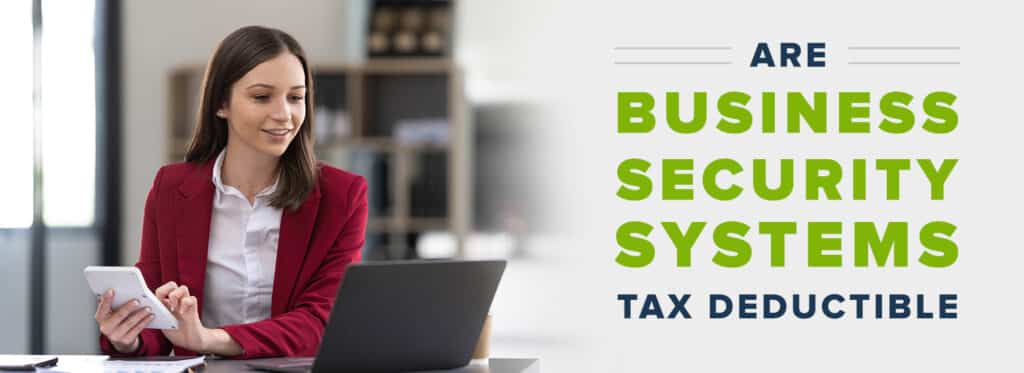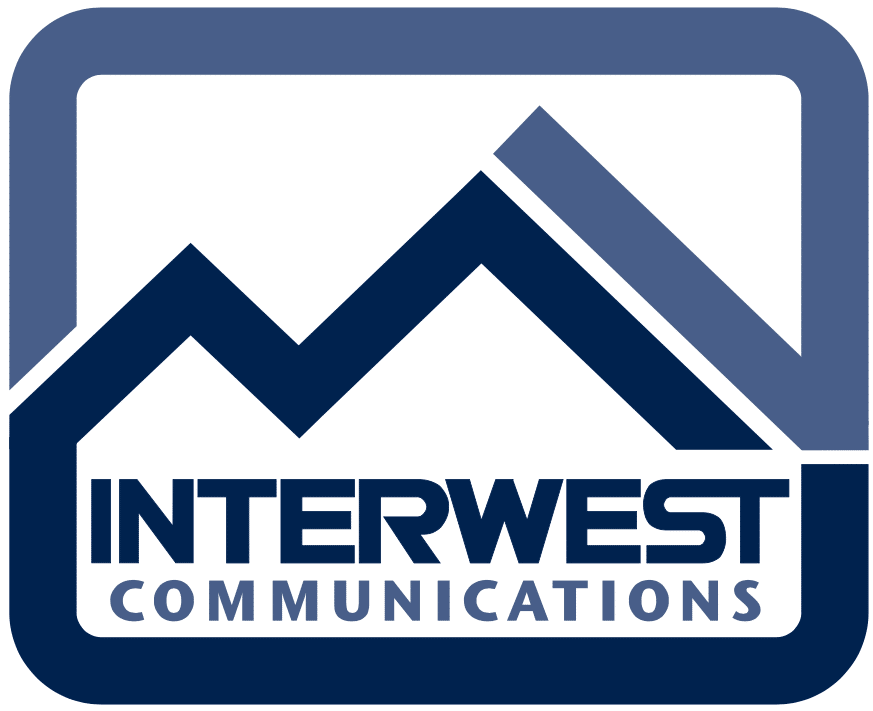- May 9, 2025
- Posted by: Interwest Communications Team
- Categories: News, Uncategorized

Originally posted on March 1, 2023 @ 2:50 pm

Maximizing Your Business Security: Understanding Tax Deductions for Security Systems
In today’s challenging business environment, security systems have become a necessity for businesses of all sizes. According to a survey by the National Retail Federation, retailers lose an estimated $61 billion annually due to inventory shrinkage, which includes theft, shoplifting, and employee theft.
This leaves businesses exposed to potential losses that make you close your business. And business owners are left with the need to protect their assets, employees, and customers from various threats, including theft, vandalism, and break-ins.
Introduction
The solution: security systems! A study by the University of North Carolina at Charlotte found that visible security measures, such as surveillance cameras and alarms, are effective in deterring burglars.
According to ProLux Security, when security cameras are visible, crime decreases by 47%. So, it is no wonder that people are turning to this solution to protect their assets.
However, we know that installing security systems comes with expenses. And as a business owner, you might be wondering whether the cost of installing and maintaining a security system is tax deductible.
The answer to this question is not straightforward and depends on various factors, including the type of security system, its purpose, and the IRS rules. In this article, we will provide you with valuable insights into the tax implications of installing a security system for your business.
So keep reading for more! First things first, what are business security systems?
What are Business Security Systems?
Business security systems are devices and software designed to protect businesses from potential security risks. These systems can include:
- Surveillance cameras
- Burglar alarms
- Access control systems
- Fire alarms
- and other devices that help prevent or mitigate damage to businesses.
Business security systems can be installed in various settings. These include retail stores, office buildings, warehouses, and manufacturing plants. Or any other business-related commercial space.
The 4 Key Benefits of Business Security Systems
Business security systems offer several benefits to business owners. There are four main benefits that you will get from installing a security system. Let’s get into it.
1. Protection of Assets
Security systems can help prevent theft, vandalism, and other forms of property damage. And while you may think that external threats are the only thing you need to worry about, the truth couldn’t be further from that.
According to a study done by SMB Data Breaches Deep Dive, internal actors make up 44% of the culprits in small business cybercrimes. Adding to that, 93% of the motives are financial. So it could also help you protect your assets from employees.
2. Employee Safety
Security systems can help ensure the safety of employees by deterring potential threats. It can also alert them to potential dangers. It will also help everyone keep themselves accountable and feel like they work in a safe environment.
3. Customer Safety
Security systems can help ensure the safety of customers by preventing theft, fraud, and other risks. It will also help with the professionalism your business has to offer. Seeing a security camera will do substantial things to the subconscious of your consumer.
4. Peace of Mind
Business owners can have peace of mind knowing that their businesses are protected from various security threats. Nowadays, security systems have apps that also allow you to keep an eye on your business 24/7.
But now that we’ve gone through the benefits, we can get to the good part. Are security systems tax deductible from your business expenses?
Tax Deductibility for Business Security Systems
The tax deductibility of a business security system depends on several factors, including the type of system and its purpose. Generally, security systems that protect business property or employees can be tax-deductible.
However, if you were asking yourself if you can deduct those that are primarily for personal use or residential security, the answer is no. Business owners should consult with a tax professional to determine the tax implications of installing a security system for their business.
You can also consult the IRS rules directly and see if you are eligible for any tax deductions. But what are those rules?
IRS Rules on Tax Deductions for Security Systems
The IRS allows businesses to deduct ordinary and necessary expenses incurred in carrying on a trade or business. This includes security expenses.
However, security expenses that are excessive or unreasonable may not be deductible. Business owners must be able to justify the expenses and provide proper documentation to support their deduction claims.
You can read more about this in IRS Publication 535, Business Expenses. You will find the amounts and numbers laid out so you can consider them while making your decision.
Furthermore, let us give you more information on what can be deducted from security systems, according to the IRS.
Top 5 Types of Security Systems that are Tax Deductible for Businesses
Though you will have to invest in a security system, you may be able to save yourself quite a pretty penny when it comes to tax deductions. So, what types of security systems are tax-deductible for businesses?
Well, in short, security systems that protect business property or employees. Though the umbrella is much bigger than that. These can be:
- Surveillance systems
- Burglar alarms
- And Access control systems
And you may even be able to get credits for installation or deduct the maintenance fees of those security systems. So, let’s get into a bit more detail.
1. The Tax Deductibility of Security Cameras and Surveillance Systems
Surveillance systems can be tax-deductible if they are primarily used for business purposes, such as monitoring employee activities or preventing theft or vandalism.
However, if surveillance systems are used primarily for personal use, such as monitoring a home office or a personal residence, they may not be tax-deductible. Business owners must be able to show that the surveillance system is necessary and reasonable for their business.
2. Tax Deductibility of Burglar Alarm and Access Control Systems
Burglar alarm and access control systems can also be tax-deductible if they are primarily used for business purposes, such as preventing break-ins or unauthorized access to the business premises.
3. Tax Deductibility of Maintenance and Monitoring Costs
Business owners can also deduct the maintenance and monitoring costs of their security systems, including costs related to system upgrades, repairs, and ongoing monitoring services.
However, the IRS rules state that these expenses must be reasonable and necessary for the business’s operation and not excessive or unnecessary.
4. Tax Credits for Security System Installations
In addition to tax deductions, business owners may also be eligible for tax credits for installing security systems. Tax credits provide a dollar-for-dollar reduction in the business’s tax liability.
The tax credits available for security system installations vary depending on the type of system and the business’s location. Business owners should consult with a tax professional to determine if they are eligible for any tax credits.
5. State Tax Deductions for Security Systems
Apart from federal tax deductions and credits, some states offer tax deductions or credits for security system installations or upgrades.
Business owners should research their state’s tax laws and regulations to determine if they are eligible for any state tax benefits. However, it isn’t ever that easy, and there are steps you have to follow to apply for any of these tax deductions.
Documentation and Record Keeping for Business Security Systems
To claim tax deductions for business security systems, business owners must maintain proper documentation and record keeping. This includes keeping receipts and invoices for the purchase and installation of the security system and maintaining records of the system’s maintenance and monitoring costs.
Business owners should also keep a log of any security incidents that occurred and how the security system helped prevent or mitigate them. As this will help in the tax deduction process.
One really easy way to keep track of this, is by keeping a budgeting app that allows you to save receipts. You can also have all business invoices sent to your business email address and keep them in a separate folder.
Conclusion
According to Statista the surveillance technology market is set to grow by an additional 164% between 2022 and 2026 to 213.16 billion. Will you be contributing to the growth of this number?
Business security systems can be a life saver and are becoming increasingly necessary! The good thing is that, as we saw, they are also tax-deductible.
Just keep in mind they must be used for business purposes and they need to be a reasonable and necessary expense. And remember, document everything!
Business owners must maintain proper documentation and record keeping and consult with a tax professional to determine their eligibility for any tax deductions or credits. After doing this, enjoy the money saved, and thank us later!
